It's probably no surprise to you that I'm a big believer in the power of song. So I was really pleased to read this Guardian article that a friend forwarded to me this week; http://bit.ly/moqAbc.
It's about a new book written by Sally Goddard Blythe, a consultant in near-developmental education and director of the Institute for Neuro-Physiological Psychology. Sally claims that 'signature' melodies and inflections of traditional rhymes prepare children's brains for language.
While I was delighted to hear this (it is, after all, what Mini Ps and Perform is all about), I couldn't help wonder if it's really news.
The idea of singing songs, lullabies and nursery rhymes to children is a basic teaching instinct that has been around for hundreds of years. I've always believed that parents have an natural urge to use songs or music in caring for their children. When we want to calm a baby we sing a soothing song to them; when we want to amuse bored children in the car we sing songs or nursery rhymes. I know that if I meet a baby I'll pick it up, rock it and sing! I'd always assumed this was the same for everyone, but over lunch with a friend the other day, I was corrected. We were discussing the article, and when I suggested that everyone sings to their kids, she replied "Not at all. I can't sing and I feel embarrassed to do it in front of Maddie."
It may not be everyone's forte, but I personally believe that if parents are singing and repeating songs and music to their children (even if they're not Katherine Jenkins!), they will pick up vocabulary and sentence structure much quicker. At Perform, we have always helped children develop in this way, often consolidating skills parents have introduced at home. Recent advances in the study of the brain have enhanced our understanding about how engaging with music can transfer to other skills and, after 20 years experience with children, I've seen firsthand how important this can be. It's the "timbre" of songs/rhymes/rhythms that is key. When this is right, the song can be easily translated into day-to-day speech. I've seen the results and they can be stunning.
For example, I have a little girl who comes to my Mini Ps class and her speaking is exceptional. She's just 2 years old and I'm always very surprised by her talking skills. I grilled her Mum about a month ago and asked her how come Ellie was so advanced. Her mum's reply was ?we just sing and sing and sing?.
So I suppose the message is, if you can (or even if you think you can't) - SING! It really doesn't matter if you are good or bad, just encourage your kids to do the same. If you don't know the lyrics to nursery rhymes, just make up songs! In our household we love our 'Wash Your Hands Song' and just try telling my children to get into bed before the 'Night Night Song" ;). Give it a go.....your children will la la la la love it!

